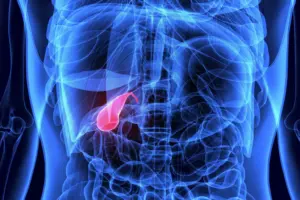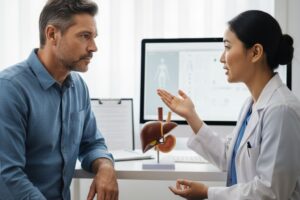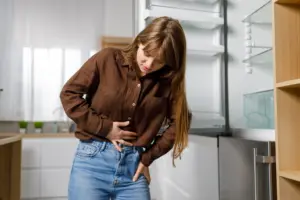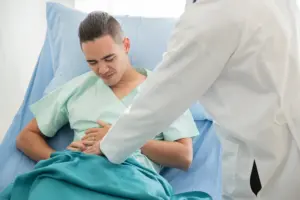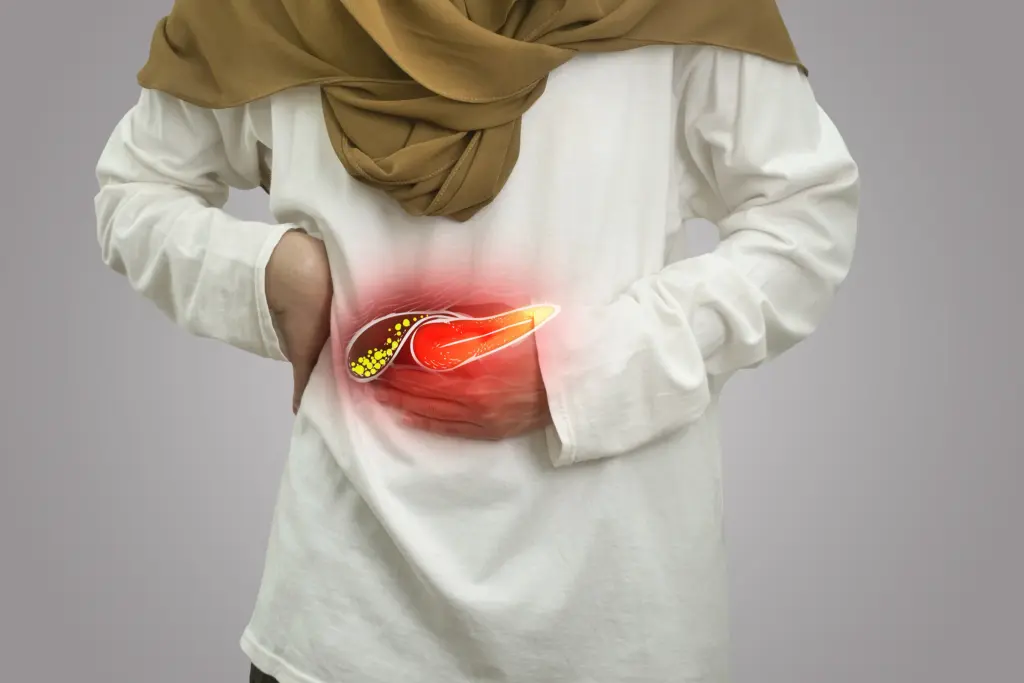
Gallstones causes & treatment: Ever felt a sharp upper-abdominal pain after a meal, especially a rich, fatty one? It isn’t always simple indigestion; it could be gallstones. Many people don’t realise they have it until symptoms flare. This guide covers what gallstones are, why they form, warning signs, and your treatment options.
What are gallstones?
Gallstones are small, stone-like deposits that form in the gallbladder, a tiny organ beneath the liver that stores bile for fat digestion. When bile’s mix is unbalanced, often with too much cholesterol or certain wastes, it can harden into stones. They can range from grain-of-sand size to golf-ball size, and you may have one or many. Types include cholesterol gallstones (the most common) and pigment gallstones (made of bilirubin, typically smaller and darker).
Also Read | Gallstones or gas? How to know what’s causing your pain
What causes gallstones?
Gallstones form when the bile balance is disturbed. If there’s too much cholesterol and not enough bile salts (and lecithin) to keep it dissolved, crystals can form and grow into stones. Bile salts normally help break down fats and cholesterol; when they’re low, stones are more likely.
Who can get gallstones?
You are more at risk if you are female, over 40, overweight or obese, or consume a lot of fat or fried foods. Risk also rises with diabetes, rapid weight loss, and a family history of gallstones.

Common symptoms of gallstones:
Many people with gallstones have no symptoms. The silent gallstones are often detected incidentally on an ultrasound. A gallbladder attack typically causes sudden pain in the upper right abdomen or the mid-upper belly, sometimes spreading to the back or right shoulder.
Other signs can include nausea/vomiting, bloating/indigestion, and yellowing of the skin or eyes (jaundice). If you develop severe pain, fever, or jaundice, seek medical care immediately.
Also Read | How to dissolve gallstones without surgery: What works?
How to treat gallstones?
If gallstones aren’t causing trouble, your doctor may suggest watchful waiting. Surgery isn’t needed unless pain or complications arise. To lower risk, focus on gradual weight loss, a balanced diet, and other lifestyle changes. In select cases, medicines can help dissolve stones.
Gallstones are common but can trigger severe pain and complications when they flare. If you’re getting repeated upper-belly pain after meals, don’t ignore it.




